Democratic debate: Five key battles
- Published
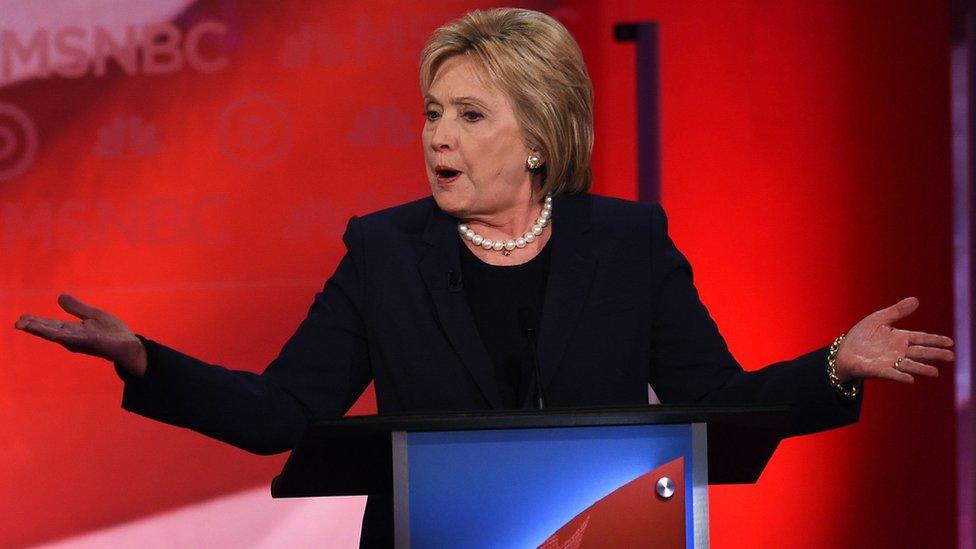
At the end of the Democratic debate, Hillary Clinton said New Hampshire Democrats should vote with their hearts and their heads when they head to the polls on Tuesday - the next round in the process of selecting candidates for November's presidential election.
Over 90 minutes on Thursday night, Mrs Clinton and Bernie Sanders fought over where the heart and head of the Democratic Party should be.
In often contentious exchanges the two candidates offered starkly different views of what it means to be a Democrat - and the best way to implement liberal policies.
Both candidates spent time on the offensive, pushing their advantages, and defending their weaknesses. In the end, the evening boiled down to five key questions and what they say about the state of the Democratic race.

What is a progressive?
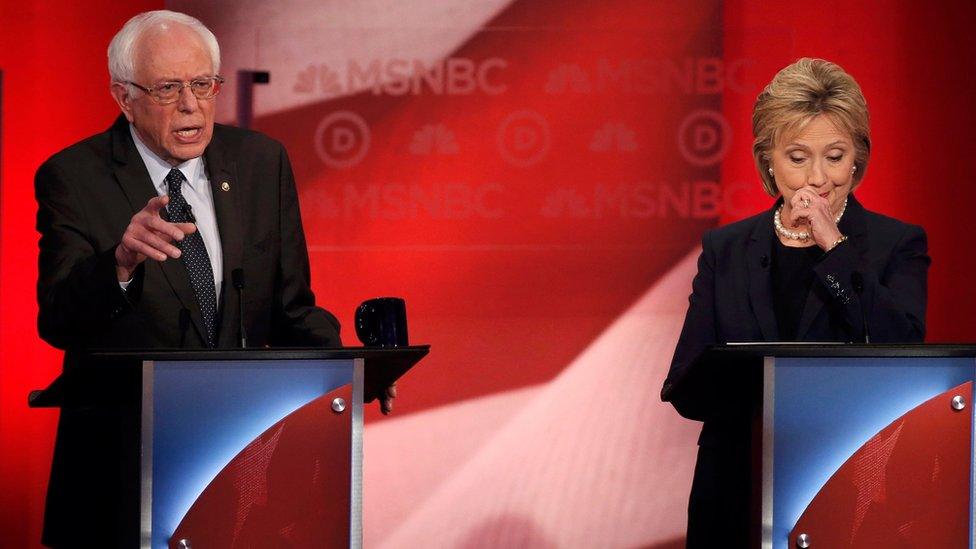
The term "progressive" has recently come into favour as a way for those on the US left to identify themselves, as conservatives have successfully tarnished "liberal" with negative connotations.
But what is a progressive? On Wednesday, Mr Sanders sent out a series of tweets alleging that Mrs Clinton, because of her support of international trade agreements, the death penalty and the Keystone XL oil pipeline, wasn't worthy of the progressive label.
Mrs Clinton once professed to be a moderate, Mr Sanders said during the debate. "There's nothing wrong with being a moderate," he continued. "But you can't be a moderate and be a progressive."
Mrs Clinton defended herself by saying that she was a progressive who can "get things done".
"The root of that word, progressive, is progress," she added. By Mr Sanders's definition, she said, even President Barack Obama couldn't be called a progressive.
Take-away: This is the heart of the difference between Mrs Clinton and Mr Sanders. Is it right for Democrats to dream big and endorse aggressive liberal policies, as Mr Sanders suggests? Or is incremental improvements and an emphasis on what is clearly achievable the way to go, as Mrs Clinton asserts?

Can you take donations and not be beholden to the donors?
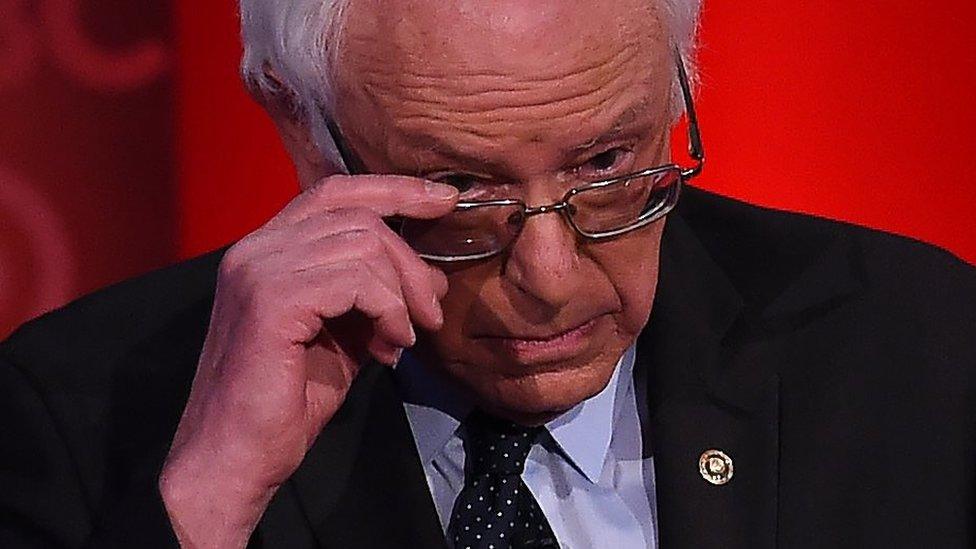
One of Mr Sanders's sharpest critiques of Mrs Clinton is that she is beholden to corporate campaign donors that have helped her raise more money than any other candidate running for president today. It's a point he returned to when asked whether Mrs Clinton represented the Democratic "establishment".
"What being part of the establishment is, is, in the last quarter, having a super-PAC that raised $15m from Wall Street, that throughout one's life raised a whole lot of money from the drug companies and other special interests," he said.
"To my mind, if we do not get a handle on money in politics and the degree to which big money controls the political process in this country, nobody is going to bring about the changes that is needed in this country for the middle class and working families."
Mrs Clinton took offence at that, accusing Mr Sanders of making an "artful smear".
"If you've got something to say, say it directly," she said. "But you will not find that I ever changed a view or a vote because of any donation that I ever received."
When later asked whether she'd make public the transcripts of speeches she made to the investment firm Goldman Sachs, for which she was well compensated, she dodged.
"I don't know the status, but I will certainly look into it," she said.
Take-away: This was Mrs Clinton at her most defensive. Given the concerns Democratic voters have with the influence of money in politics, Mrs Clinton will always struggle to explain how her views were not influenced by a personal bank account that swelled thanks to the financial industry.

Is Wall Street inherently corrupt?
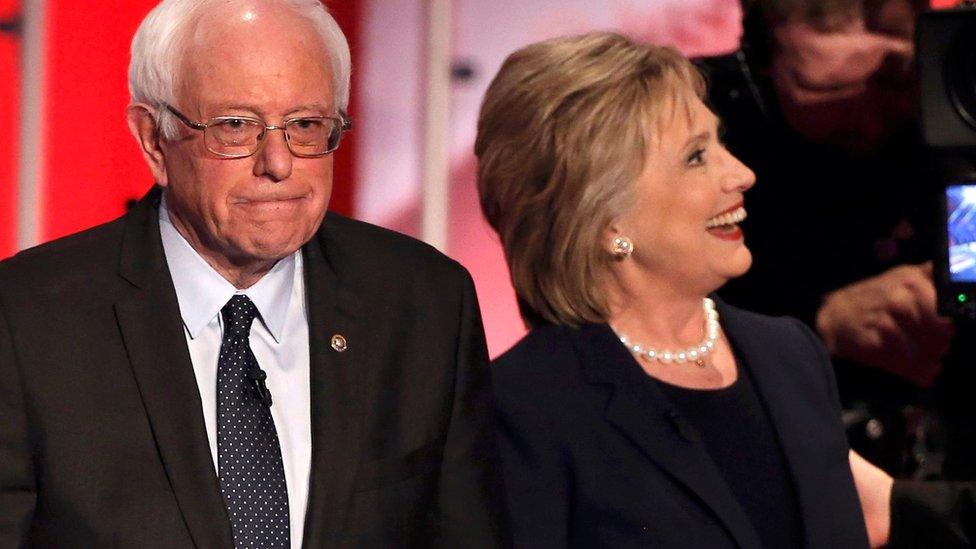
"The business model of Wall Street is fraud," Mr Sanders asserted during Thursday night's debate. "I believe that corruption is rampant."
It's part of his standard stump speech, and it's perhaps notable that while such assertions likely cause conservatives to cringe - and the 55% of Americans who own stocks to raise an eyebrow - Mrs Clinton did not so much as challenge Mr Sanders as say he doesn't go far enough.
"I care deeply about this because just like you I have met so many people who had their life savings wiped out, who lost their homes, who are barely back with their heads above water," she said. She then went on to say that she has a more comprehensive plan to address the financial industry's excesses.
Take-away: There's been some concern among Democrats that a protracted fight against Mr Sanders will push Mrs Clinton too far to the left, making her an easier target if she wins the nomination and faces off against a Republican in the autumn. Moments like this make that possibility seem increasingly likely.

Does the 2003 Iraq vote still matter?
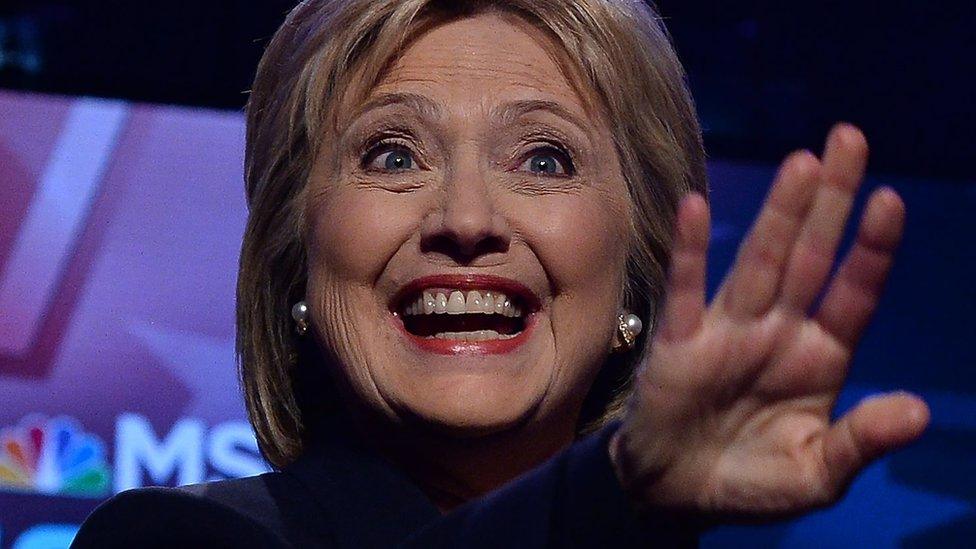
When the subject of the debate turned to foreign policy, Mrs Clinton - who was often on the defensive during the first 45 minutes - seemed on firmer ground.
Several times, when pressed on his foreign policy credentials, Mr Sanders pointed to his vote against authorising the Iraq War in 2003. Mrs Clinton voted for the war - a fact that anti-war Democratic voters did not forget when she ran against Mr Obama in 2008.
It's been 13 years since then, however, and Mrs Clinton was ready with her counter-attack when Mr Sanders cited his vote while talking about current policy in Syria.
"A vote in 2003 is not a plan to defeat ISIS [so-called Islamic State]," she said. "We have to look at the threats that we face right now, and we have to be prepared to take them on and defeat them."
Mr Sanders again turned to the war vote when pressed on his lack of foreign policy experience, saying it showed he had good judgement. Mrs Clinton again was quick with a response.
"When it comes to judgement, having run a hard race against Senator Obama at the time, he turned to me to be secretary of state," she said.
Take-away: Mr Sanders likely benefitted from the fact that this exchange happened well into the debate, when the attention of viewers may have been flagging. And it's clear at this point that, unlike Republican voters, most Democrats are more concerned with economic interests than foreign policy.

What about those "damned emails"?
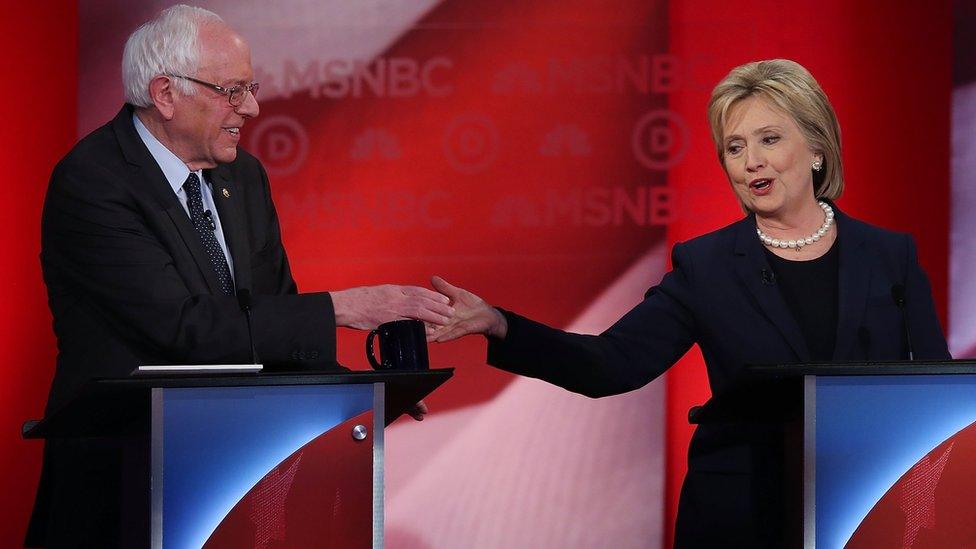
Time and time again Mrs Clinton has stumbled when questioned about her use of a private email server while secretary of state and the possible security vulnerabilities such a set-up may have created.
This time, however, Mrs Clinton had a new response - thanks to revelations that Colin Powell, secretary of state under Republican George W Bush, also received emails that were later deemed classified on his private email.
"I agree completely with Secretary Powell, who said today this is an absurdity," she said. "And so I think the American people will know it's an absurdity."
She painted the entire email scandal as a Republican attempt to derail her presidential bid - and Mr Sanders, who last week had said the situation was a "serious issue", seemed to back off.
"The secretary probably doesn't know that there's not a day that goes by when I am not asked to attack her on that issue, and I have refrained from doing that and I will continue to refrain from doing that," he said.
Take-away: Mrs Clinton said she was "100% confident" that nothing would come of the government investigation into her handling of classified material on her private email server. She may have a well-honed response now, but if circumstances change, it could prove her undoing.